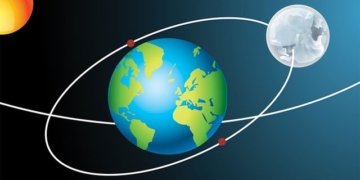Can humans achieve immortality in the future? Eternal life is a desire that every individual longs for.
With the rapid advancements in science and technology, modern medicine has made significant strides; many diseases are now treated effectively, resulting in increased life expectancy compared to the past. After years of research, medical scientists have discovered a factor that can control human lifespan: telomeres located on genes. Telomeres at the ends of human chromosomes help prevent genes from deteriorating during replication.
However, each time a cell replicates, its telomeres are depleted. Once telomeres become exhausted, the cell ages and can no longer replicate, marking the onset of aging and death. Through experiments, scientists have found that simply using an enzyme called telomerase can extend these telomeres, thereby increasing human lifespan.
Scientists have demonstrated this through experiments on mice. Therefore, theoretically, if telomerase can be used to continuously lengthen telomeres in the future, humans may be able to achieve eternal life and attain immortality.

If humans achieve immortality, our world will undergo significant changes. (Illustration: Zhihu)
However, we should not be overly optimistic, as achieving immortality could lead to profound changes in our world. If not handled carefully, immortality might bring calamity to humanity.
Many people believe that eternal life is wonderful, but is that really the case? Firstly, if humans become immortal and this technology is widely accessible, the most apparent outcome would be a significant reduction in human mortality rates. Once immortality is achieved, people could only die from disease or accidents.
If we can make humans immortal, many traditionally fatal diseases would no longer be a concern. One foreseeable consequence of this is a rapid increase in the human population over time. Based on current birth rates, it is likely that in a few hundred years, the population could reach hundreds of billions.

With the current birth rate, the population could reach hundreds of billions in a few hundred years. (Illustration: Zhihu)
This would impose a significant burden and pose a major threat to Earth. The planet’s resources are finite, while human demands are endless; as the population continues to grow, the Earth’s environment will rapidly deteriorate, leading to severe environmental degradation and putting humanity itself at risk of destruction.
The increasing demand for housing will result in a reduction of arable land for food crops. Consequently, the living space for other animal species on Earth will shrink, leading to the death of a large number of animals. As many animals perish, Earth’s ecosystem will be devastated, potentially resulting in severe chaos. A mass extinction of species may occur, and humanity may not be able to avoid this fate.

Population growth is a significant burden on Earth. (Illustration: Zhihu).
Secondly, if humans become immortal, their perception of time will fundamentally change. Time will no longer be seen as a precious resource or a limited commodity; instead, it will become infinite. This could cause people to lose respect for and appreciation of time, weakening their consciousness and motivation. Humans may become lazy and passive, affecting their creativity and proactivity. This mindset could lead to stagnation, or even regression, of human civilization.

If immortal, human perception of time will fundamentally change. (Illustration: Zhihu).
Thirdly, if humans become immortal, the structure of human families will undergo seismic changes. People may no longer feel compelled to marry or have children, or they may choose to have only one child. Family ties could become indifferent, and emotional connections between individuals may cool. Society, in general, might become lonelier and more apathetic.
In such a case, society could experience a significant wealth gap, with social mobility and equity diminishing substantially, leading to increased conflict and dissatisfaction. Society may become chaotic and crisis-ridden.
Finally, if humans attain immortality, human nature may experience severe degradation. People might no longer value ethics and conscience, becoming less appreciative of life, viewing it as trivial, and losing concern for death. This would lead to a decline in moral standards and an increase in violence and criminal behavior. As a result, society could become chaotic and dangerous.

Everything must reverse when it reaches its peak. (Illustration: Zhihu).
As the saying goes, everything must reverse when it reaches its peak. Human immortality may not be a wonderful concept but rather a terrifying one. Of course, these are all speculations based on assumptions; perhaps human immortality will never become a reality.
While eternal life may allow us to escape the fear of death and enjoy a longer existence, it also raises many questions that we should carefully consider: do we truly desire eternal life? Although the subjective emotions related to life and death may bring us pain, who can say that humans will certainly be happy after achieving eternal life!
Death is the inevitable law of nature and the best arrangement of creation. Life is not about its length but rather about whether it is happy and meaningful. Living happily is the true “eternal life.”





















































